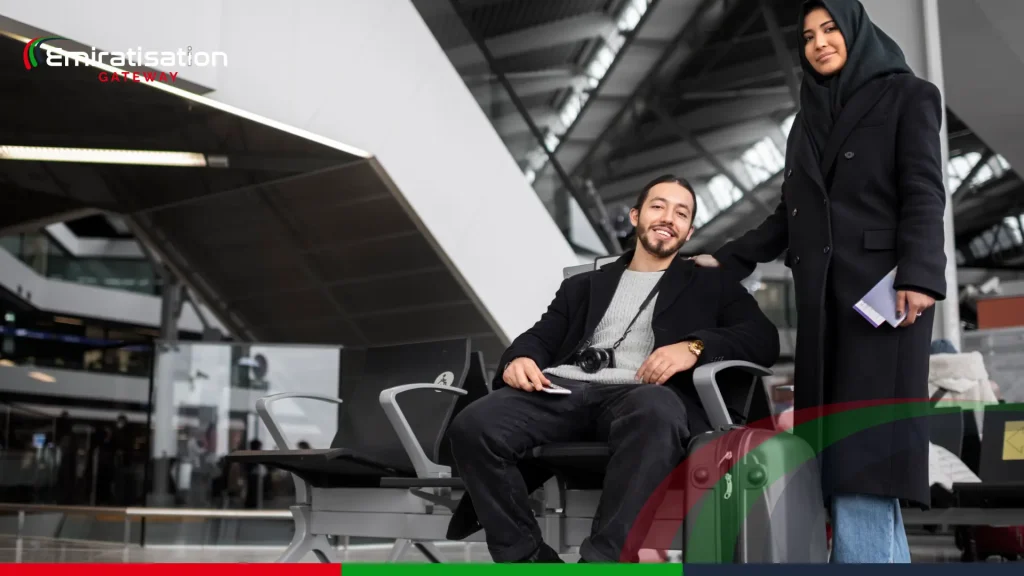Throughout life, we all have experienced sudden illnesses, accidents, or urgent travel needs. Most of the time, we don’t even know which leave to apply when these circumstances arise. But you don’t need to suffer like us as we did. Get to learn about emergency leaves, and you’re good to go!
Emergency leave allows employees to step away from work when unforeseeable personal or family crises hit. These leaves act as a lifeline during turbulent moments when proper planning isn’t possible.
If you’re working in the UAE, then knowing your labor rights is important. You must have knowledge of how they intertwine with employer discretion. It helps you handle such situations confidently.
The article details how emergency leave works in the UAE, balancing employee needs with practical workplace realities!
What is Emergency Leave?
Emergency leave is the unplanned time off in the UAE granted when sizable personal or family emergencies strike. It can be anything from a sudden hospitalization to a family matter. Emergency leaves are different from sick leave or annual leave. Employees may find detailed guidelines under both leaves. Emergency leave remains undefined in legislation.
Difference Between Emergency Leave & Other Leaves
As discussed earlier, emergency leaves are different. Understanding the types of leaves is necessary to avail oneself when in need.
Annual Leave vs. Emergency Leave
Annual leave follows a structured schedule. They are granted for 30 calendar days. On the other hand, emergency leave happens without planning. These leaves depend on the employer’s discretion.
Sick Leave vs. Emergency Leave
Under the law, employees are entitled to up to 90 days of sick leave UAE per year. The first 15 days are fully paid. The remaining 30 days are at half pay, and 45 days are unpaid. You can avail leave after probation.
However, emergency leave in the UAE labour law doesn’t fit into that mold. These types of leaves lack legal backing and are granted only as a goodwill gesture by employers. It depends on policy or internal discretion
How to Apply for Emergency Leave?
Emergency strikes? Below are the procedures to apply for emergency leave when a sudden situation hits you:
Notify your HR/Manager:
You can communicate with them through a phone call followed by written communication.
Submit a leave request:
You can use either email, HR portal, or a letter. Don’t forget to state complete reasons and a timeline.
Provide supporting documents:
This reinforces credibility and speeds up the leave approval process.
Maintain communication:
You may update the employer if timelines shift.
Follow your policy:
Fill out leave forms or handover notes. An Employment Certificate may be needed if your leave intersects with visa or HR formalities.
Emergency Leave as Per UAE Labour Law
The UAE labour law doesn’t define emergency leave as a formal category. It recognizes established leaves like sick, maternity, and bereavement leave.
The Emirati Labor Law allows employees to request unpaid leave with employer consent. The good news? It doesn’t count toward service continuity. This results in emergency leave lacking fixed entitlements or durations. The leave approval rests on the company policy and discretion
Article 29 UAE Labour Law
Article 29 governs annual leave entitlements. The law doesn’t mention emergency leave. This underscores that emergency leave isn’t a legal right rather a discretionary benefit.
As an employee, no need to worry as company policies fill the gap. Many organizations outline emergency leave handling and application guidelines. They also address durations and whether leave is paid or unpaid.
Most of the time, knowing a company’s policies is difficult. Outsourcing Services in UAE often become a vital support point, as they closely help employees understand internal procedures and assist companies in crafting fair emergency leave policies.
Employer Discretion in Approving Leave
Employer testing of requests varies when emergency leave lacks legal grounding.
Legal Stance vs. HR Policies
From a legal point of view, employers aren’t obligated to grant emergency leave. Yet many HR teams frequently approve emergency leave requests. Guided by empathy and risk management best practices for serious disruptions.
The leave approval hinges on the emergency severity and authenticity. Worker’s tenure and internal policy clarity are other roadblocks. As a result, companies are offering compassionate emergency leave policies. This will foster trust as good policy supports both employer fairness and business resilience.
Valid Reasons for Emergency Leave
There are many common valid reasons when employers grant emergency leave. Family Emergencies like serious illness, accidents, or bereavement involving close family members. Natural Disasters or severe weather demand immediate attention. Urgent Personal Travel requires you to travel abroad or within the UAE at short notice.
Employers grant quick approvals in such situations out of compassion. Because they align with humane and practical HR policies
Common Situations Considered Emergencies
Medical Emergencies where the employee or a family member requires urgent medical attention. Sudden illness or critical events involving dependents. The situation requires immediate care. The death of a spouse or a close family member is another important situation that needs immediate leave, but comes under bereavement leave and is defined by law.
Duration & Salary Impact
There’s no legal benchmark for emergency leave duration. Most companies tailor emergency leave lengths on a case-by-case basis. Some set informal maxima and are discretionary
Paid vs Unpaid Leave:
Organizations may offer paid emergency leave for permanent staff. The leaves are not mandated by law. Emergency leaves are unpaid for probationary staff. Any leave beyond company-defined paid days shifts to unpaid. Similarly, unpaid leave may not count toward service duration or gratuity calculations as per the Emirati Labor Law.
Impact on Salary & Benefits:
Emergency leave can impact a worker’s salary and benefits. The first fifteen days of leave may be paid, but are not guaranteed. Longer leave can result in salary deductions. Unpaid leave may also affect gratuity.
Emergency Leave for Expats
Expats face unique scenarios. This may include urgent travel abroad or visa-related emergencies. The UAE labor law applies equally. Expats should take extra steps. They are required to notify their employer immediately. Submit a formal request, and provide return travel documents or visas if needed.
Tips for Employees
Try to communicate clearly and professionally. Early notices and full disclosure matter. Provide valid emergency leave reasons that are factual yet empathetic about your situation. You should be transparent with HR for timelines. It’s wise to reassure them you’ll return or make up for missed work. If needed, keep documentation ready, even if informal. Minor details like travel tickets or medical notes help. Plan for your absence by delegating tasks or notifying colleagues to maintain workflow continuity.
Alternatives to Emergency Leave?
Consider other options if emergency leave isn’t approved. You can use annual leave by requesting to convert or utilize accrued leave days. Short unpaid leave can also be utilized. These leaves can be taken with employer consent. Sick Leave is another great alternative. Follow sick leave protocols to access up to 90 days of structured medical leave if the emergency involves a medical reason.
What are the Emergency Leave Misconceptions?
Various misconceptions about emergency leave. The following are some myths:
Myth No 1: Emergency leave is always paid
Emergency leaves are often unpaid or partially paid. However, it depends entirely on the employer’s discretion and policy.
Myth No 2: Approval is automatic.
Employers evaluate on a case-by-case basis. They check your history, authenticity, documentation, and impact on operations. This will have influence on decisions.
Myth No 3: No documentation is required.
These types of leaves are not mandated by law. To increase your chances, medical certificates or travel documents are used. Both can boost credibility and prevent disputes.
Wrapping Up!
Emergency leave in the UAE doesn’t come with clarity. These leaves represent a bridge between unexpected personal needs and workplace obligations. Balancing employee support with business continuity depends on various factors.
Be proactive, as emergencies don’t wait. Worried about sudden emergencies and how to get approval? Get Emiratisation Gateway assistance to understand your leaves. When emergencies occur, clear communication and documentation become your best allies. Know how to secure needed time off with dignity and professionalism!
FAQs
Is emergency leave paid in the UAE?
Of course not! Emergency leave isn’t guaranteed or standardized by law. Employers may offer paid leave, but it’s at their discretion. It is often unpaid for probationary employees.
How many days of emergency leave are allowed?
There’s no set duration for emergency leaves. Companies define their own policies. Some employers allow up to 15 days. Others negotiate based on urgency and impact
Can an employer deny emergency leave in the UAE?
Your employer has the authority to deny the emergency leave since the law doesn’t mandate it. You can improve your chances if your company has a solid HR policy. You can also make reasonable requests, and proper documentation sometimes gives you a green signal.
Do expats get emergency leave for family abroad?
The employees traveling abroad can request it. However, approval remains discretionary. They need to provide travel proof and explain the urgency. Closely following policy helps secure approval.
What documents are required for emergency leave?
Not legally required, employers often ask for some documents. Including medical reports, travel tickets, death certificates, or other emergency-related documentation. All these are required to support your request.






